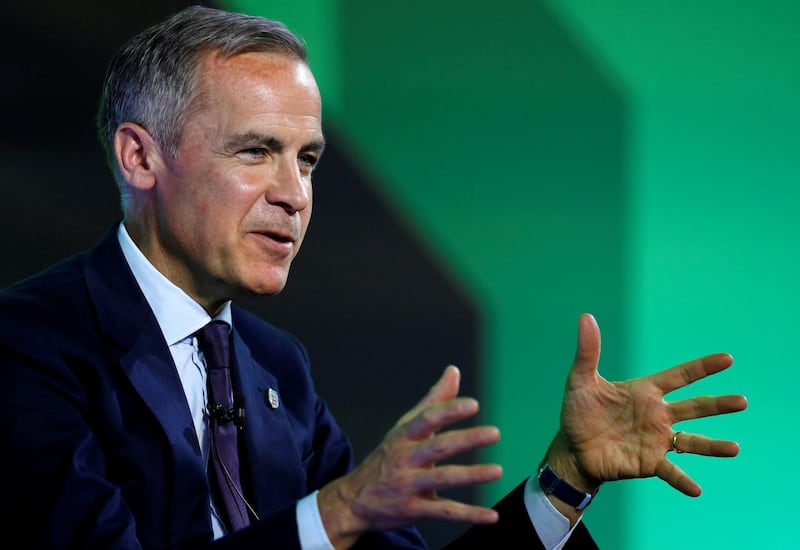Barring an economic or Brexit-related shock - and given the way 2018 is going, few would bet against surprises of any kind with confidence - the Bank of England will almost certainly raise interest rates on August 2.
The question is, why? Especially if it turns out to be "one and done" or followed up by just one more hike to 1 per cent.
As an increasing number of BoE officials are now arguing, it's because the economy is in better shape than previously thought. The weakness in Q1 was largely weather-related, so the bank can follow the Fed and begin to normalise policy.
Employment is at a record high, unemployment the lowest since 1975 and inflation is above the Bank's 2 per cent target. The case for removing crisis-era stimulus is building, particularly now that the bank has decided the economy is operating under a new "speed limit" which means it risks overheating even with growth of around 1.5 per cent a year.
What's more, the BoE needs ammo to fight the next downturn when it comes. With interest rates currently just 0.5 per cent, the bank may feel it should start building up that buffer sooner rather than later.
Money markets are putting around an 80 per cent probability on a rate hike this week. However, there's a growing sense that it will only come because governor Mark Carney and some of his colleagues have effectively said so.
Backtracking now would be difficult, especially for Mr Carney, who has acquired the tag of "unreliable boyfriend" for leading markets towards rate hikes in the past only to not deliver. He and others may feel bound to follow through now, regardless.
The latest Reuters poll of economists suggests UK rates will only get up to 1 per cent by the end of next year. In its most recent set of economic forecasts in May, even the Bank assumed rates of only 1.2 per cent by late 2020.
The risks of raising rates could be asymmetrical: the positive effects of tightening over the next couple of years, even gradually, will be somewhere between minimal and negligible, while consumer and business confidence could be hit hard.
The bank has the increasingly dark shadow of Brexit hanging over it. The odds of a "no deal, hard Brexit" have shortened in recent weeks, an outcome which would shift the UK economic needle and bank's reaction function dramatically.
The IMF warns that the UK economy will be 4 per cent smaller over the long term in the event of a hard Brexit compared with a non-Brexit scenario. This is the kind of disaster that few policymakers are contemplating, at least publicly.
Prime Minister Theresa May controversially won a parliamentary vote on customs union earlier this month by just six votes. Had she lost, she would certainly have faced a no confidence vote in parliament and the country could well have been be going to the polls again before the year was out.
_______________
Read more:
Mixed fortunes for sterling as Brexit negotiations rumble on
UK economy exits bleak winter as World Cup boosts spending
_______________
It's difficult to imagine BoE officials touting the economy's strength and talking up interest rates in that scenario. Yet it very nearly transpired, and considering the deep state of political flux right now, could still at any time.
Tightening policy so tamely won't do much to cap inflation, especially with oil up 50 per cent in the past year. According to George Buckley at Nomura, oil's rise to $75 a barrel from $48 should boost UK inflation by around 0.3 to 0.4 percentage points.
On the other side of the equation, two quarter point rate hikes would shave 0.2 percentage points off inflation eventually. So there's little indication a couple of rate hikes will be the catalyst for getting inflation back down to the bank's 2 per cent target.
More immediately, UK economic data has been weak. The latest prints on retail sales, wages, and inflation have all come in below forecast, and in June the UK economic surprises index hit its lowest level in six years.
Even in the event of a "soft Brexit", Britain will still be one of the slowest-growing developed economies in the world. Former BoE rate-setter Andrew Sentence predicts growth this year will be just 1.3 per cent, the weakest year of calendar growth since 1962, outside of periods of recession.
There's also a risk the BoE could be raising rates just as the economic cycle is winding down. A couple of hikes to lift the Bank rate to 1 per cent wouldn't give the bank anything like the rate-cutting cushion it will need when the downturn comes.
Lastly, a rate hike next week could prove to be Mr Carney's "Trichet moment". On the face of it, that's absurd: the world economy isn't on the brink of collapse like 2008, and there's no sovereign debt crisis posing an existential threat to Britain like that facing the euro zone in 2011.
But it's safe to say, history has not judged kindly the European Central Bank's rate hikes of July 2008, and April and July 2011 presided over by the Frenchman. They were quickly followed by substantial and unprecedented policy easing.
Only time will tell if the BoE is forced to U-turn, too.






